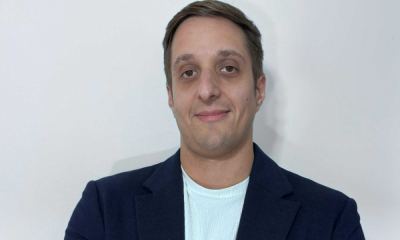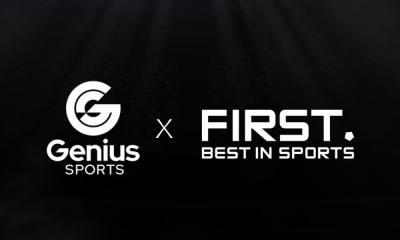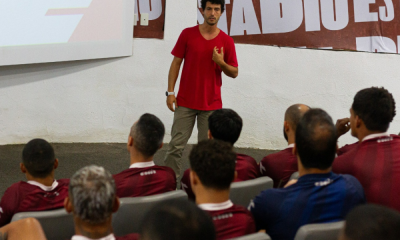Interviews
Roundtable – Continent 8’s Leaders and Legends
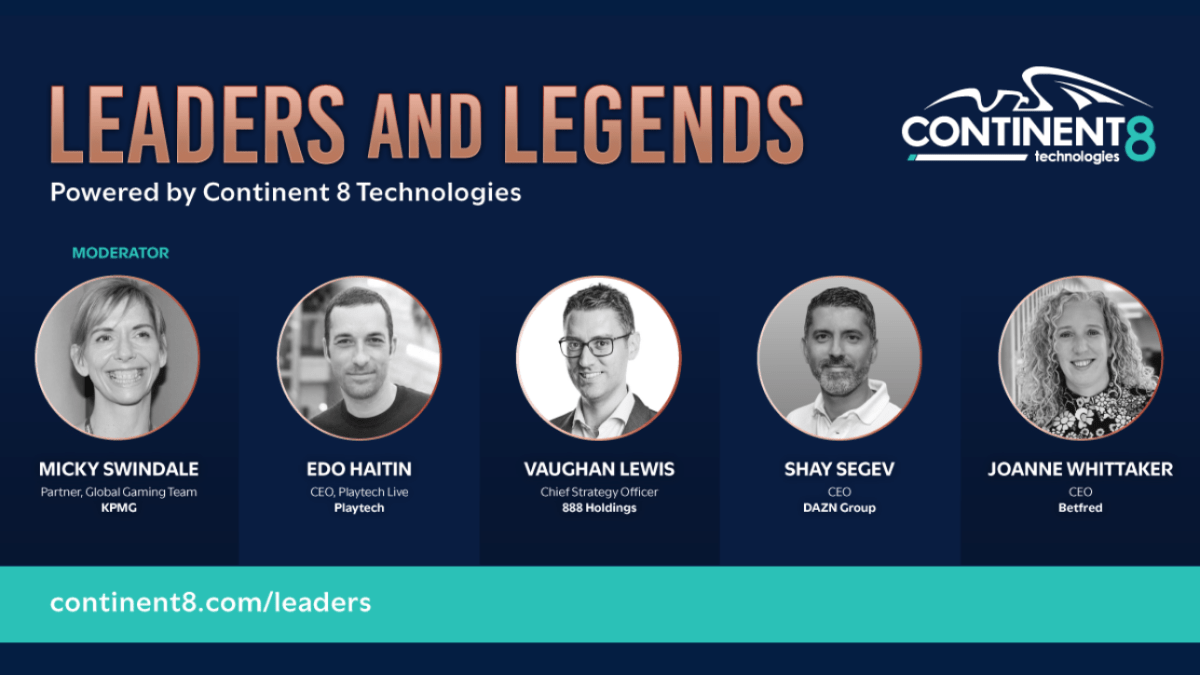
The Continent 8 Leaders and Legends series has been running for several years now, bringing together some of the industry’s biggest names to share their thoughts, insights and experiences on the hottest trends of the moment. The latest Leaders and Legends took place at the KPMG Gibraltar eSummit and saw heavyweights Shay Segev (Chief Executive Officer at DAZN), Joanne Whittaker (Chief Executive Officer at Betfred), Edo Haitin (Chief Executive Officer at Playtech Live) and Vaughan Lewis (Chief Strategy Officer at 888 Holdings) take to the stage to discuss a wide range of topics from the review of the UK Gambling Act to the future of retail in an increasingly digital world.
Moderator:
Micky Swindale – Partner, Global Gaming Team – KPMG
Panellists:
- Edo Haitin – Chief Executive Officer – Playtech Live
- Vaughan Lewis – Chief Strategy Officer – 888 Holdings
- Shay Segev – Chief Executive Officer – DAZN
- Joanne Whittaker – Chief Executive Officer – Betfred
MS: What changes do you expect to see as a result of the UK government’s review of the Gambling Act? What impact might tighter restrictions have on the market and how are you preparing for them?
JW: We just need to know what is coming. The review is hanging over us and we just need to be able to move on as an industry. We are agile, we evolve. We have heard some of the expected changes around slot stake limits, enhanced affordability checks, the levy and so on but until we know exactly what changes are coming, it is hard to properly prepare. Of course, as a business, we are trying to get ready for what is to come. I think initially there was a bit of panic, but we have got passed that now. We had a significant hit on retail when the FOBT legislation came in a few years ago, but we survived that and when I talk to Fred, he always says these legislative changes come in cycles. So, we are watching, we will respond, and I hope that we are given time to implement the technology changes that will be required. But right now, it’s just a case of wait and see.
VL: I think getting the line right as to where gambling tips over from personalisation, enjoyment and the promotion of great products and offers into something that becomes exploitative is the really challenging area that the review of the Gambling Act is trying to address. For us, we just want clarity about what are the standards that we need to meet. Once operators have that clarity, we then back ourselves to be able to provide a great player experience but with high levels of safety and within the standards set. At the moment, we are not clear on what standards we are trying to meet so our hope is that through the review process we get that clarity. Once any changes from the review have been implemented, we can then refocus on delivering the best player experience.
EH: Coming from the provider side, my perspective is perhaps a bit different. I believe that it is in the product to solve issues around responsible gambling and affordability and to deliver the right player experience. This also needs to be done in a way that the regulator can see that the player is doing so within their affordability. So, it is our responsibility as a provider to give our operators the products to do this. On the flip side, and especially as a big provider, I do feel for smaller businesses as the bar for entry into the market is being set even higher. So, regulators should bear in mind that there are companies making their first move that do need clarity and guidance as to what is expected of them.
ML: All jurisdictions, including Gibraltar, are having to quickly adapt to market changes. But what makes Gibraltar such an appealing jurisdiction to companies such as DAZN?
SS: We recently announced that DAZN would be going into betting with the launch of DAZN Bet and that we would be using Gibraltar as the hub for that. Having personally been based in Gibraltar for the last ten years I have found the jurisdiction to be amazing both in terms of the government’s support for the industry and the infrastructure it has provided, as well as the ability to establish a business here. It is also highly respected in terms of its regulatory framework and standards, and the talent that can be accessed here is second to none. This made it a very easy decision for us to set up DAZN Bet in Gibraltar.
MS: As the industry continues to grow, we have seen a real wave of M&A activity crash over the sector. With no sign of these mega deals slowing down, is now the right time for smaller businesses to position themselves for a takeover? And what makes for an attractive acquisition target?
VL: We are not seeing any slowdown in the trend of mega transactions. We have been through multiple waves of M&A and deals just keep getting bigger and bigger. We just closed a £2bn transaction but that now seems relatively small. Just before Christmas, Flutter undertook a £2bn acquisition and didn’t even have an investor call to explain it, it’s kind of like a bolt-on for them now. And then a few weeks ago you have the MGM takeover of LeoVegas, which it called “bite-size”. We are definitely in a new phase of the industry where these huge businesses have been created and significant value has been generated, and that is starting to really drive the M&A cycle.
At the medium and smaller end, we are still seeing a lot of activity. These transactions often have one or more characteristics that they share including unique products and content that you just can’t get elsewhere or that you can’t create quickly enough, market access, media convergence and other attributes that drive outsized value. This is where the future focus of M&A will be.
MS: The big four operators now account for more than 50% of the UK market share, so these companies can leverage the advantages of scale. But what impact does this have on consumer choice?
EH: We are an entertainment business, and the future of entertainment cannot be controlled by big companies. We see today that the biggest entertainers in the world are individuals that pick up their smartphones and cameras and stream videos on YouTube to tens of millions of followers. That makes them the big force in entertainment. I understand why companies undertake M&A and want to drive scale, but will this stop other businesses from entering the industry, I don’t think so. The nature of entertainment is so fluid that what is popular now will be different in five years’ time and we will most likely consume it differently. Once you work with video and content, you really pay attention to this and when we look at the market and what is in front of us, we see our immediate rivals but also those on the sidelines of the industry. Consolidation might block the immediate entry for some companies, but I do not believe that it will block the variety and versatility of the products that are offered to players.
SS: I think we might also see consolidation between industries with new experiences coming in. Where betting and gaming were perhaps seen as unethical just a few years ago, big businesses from outside of the sector are undoubtedly now looking at it. I think the US opening up has changed perceptions, too. For example, ESPN and Disney have indicated they are considering betting as a potential market for them to explore.
MS: The industry is expanding internationally with new jurisdictions embracing licensing and regulation all of the time. But with most taking a state-by-state or province-by-province approach, just how tough is it for operators to be truly global?
VL: If you were to ask all operators and suppliers if you could wave a magic wand and have harmonised rules across the world, I think the vast majority would say that is the dream scenario. It would enable us to really focus on product innovation and development, player protection and ultimately creating a much better consumer experience rather than having to spend time tailoring the platform for each market. We are one of the few operators that have a global, scalable platform that can run in multiple jurisdictions, but we have to tailor that to each market. If you look at the US, the investment we have to put into each state to meet the local tax and disclosure regulations sucks up a lot of time and diverts resources away from other areas that could be much more productive in terms of making great products and really looking after players. The more we can move towards standardised approaches, especially in the area of player protection, the better it will be for all stakeholders.
EH: Any company that wants to enter regulated markets such as the UK really needs to have a strong compliance team in place. This team is not there to scare you but to give you direction when it comes to developing products within the guidelines set. For us, one of the biggest challenges in the US is that we have to create a dedicated studio in each of the states that we enter based on the Wire Act of 1961. At the time I couldn’t understand why we could not just build one studio, but now we are up and running I see it as a good barrier to the competition. Really, you need to embrace regulation and understand the meaning behind it, even if you do not agree with it. For us as a live casino provider business, having to create a studio in each of the states we target is not optimal. But if you can understand the playground you are in and cater to that culture, it is possible to succeed.
MS: In all of our talk about online, are we losing sight of the land-based punter? Is it true that once they have gone online, they will never come back to retail betting?
JW: During Covid, it was a real fear for our business. Our retail shops were forced to close which saw our online business grow significantly but now restrictions have been lifted we have seen retail fully bounce back. We are really pleased with how the high street is performing and we can see that our customers are enjoying the betting shop experience and especially the social element. Long may that continue.
SS: You can’t ignore that betting shops are more part of the past than the future of the industry. I do think there is an opportunity to reinvent the betting shop experience, which some operators are doing with things like self-service betting terminals. There is something there but, clearly, it is not on the rise and consumers are transitioning to digital. That said, there is room to create something synergistic between retail and online.
JW: I agree there will not be new betting shops coming but at the turnover level customers are returning and they want to come to the shop. Our digital business has normalised, but we are in a much stronger position than we were pre-Covid. There is a place for the high street; I believe in SSBT and omnichannel but customers still want to come into the retail environment. We are also seeing this in other territories. In our US business, the retail performance is strong in the casinos where we have partnerships and in South Africa, we have a significant retail presence, too, although it is a very different retail offering with a much bigger footprint with 30-40 tills. I understand the importance of digital, but retail will survive.
VL: As an industry, we do not do a great job of standing up and talking about the value of the products we are selling. Retail is back to where it was post-pandemic because people love it, and they go to the shops because it is a fun thing to do. It is similar to the convergence of media and online, so long as we are providing something of value to consumers then that’s great. I think we should be proud of the service and entertainment we provide and for me, retail betting still provides a huge amount of enjoyment for customers. Betting shops never really went away, they just had to close due to the pandemic and they remain a core part of the industry.
EH: I’m going to take the middle ground here. Retail is back and I think part of the reason why players are enjoying going to betting shops is that it was taken away from them for a long time. But I do agree with Shay that reinventing betting shops is an important thing. This includes self-service and other experiences that will drive people to retail as well as online. As a live provider, we are often asked if we are cannibalising land-based by my answer is always no. We are an extension of the business, and I don’t believe we can really replace the experience of going to a casino.
Powered by WPeMatico
Baltics
HIPTHER Community Voices: Interview with the CEO and co-founder of Nordcurrent Victoria Trofimova
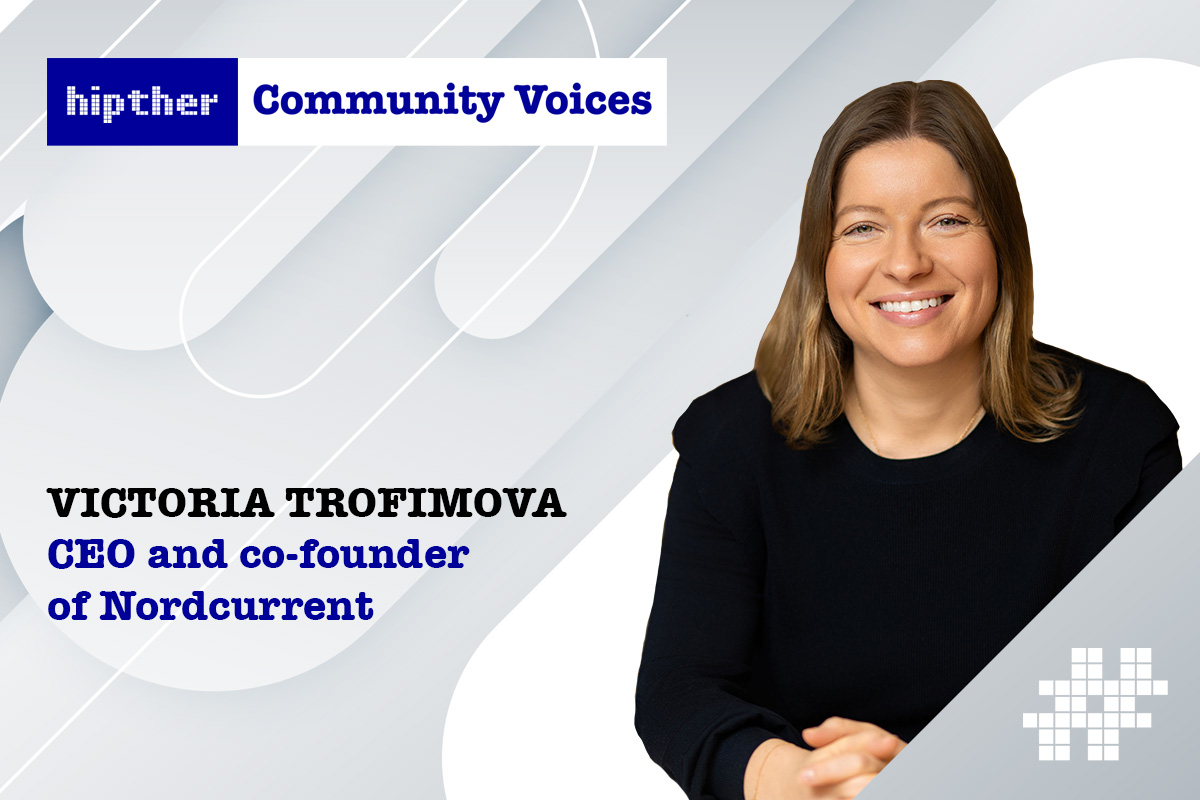
In this edition of HIPTHER Community Voices, we talk with Victoria Trofimova, the CEO and co-founder of Nordcurrent, the biggest game studio to come out of Lithuania and the Baltics. Since starting the company in 2002, Victoria has led Nordcurrent from a small team to an international gaming success story — all without external funding.
She shares how key decisions like focusing on mobile games, building a diverse team, and staying true to their creative vision helped shape Nordcurrent’s growth. We also dive into how she’s helping put the Baltics on the global gaming map, supporting young talent, and what advice she has for the next generation of women leaders in tech.
Nordcurrent has grown into a Baltic powerhouse since its founding in 2002. What were some of the pivotal moments that shaped the studio’s identity and success—especially as a bootstrapped company?
One key moment was our decision to focus fully on mobile gaming early on. That shift, around 2010, allowed us to scale globally with titles like Cooking Fever, which became a long-term success story. Another pivotal step was building and retaining in-house capabilities, from development to marketing, while staying self-funded. Being bootstrapped taught us discipline, resilience, and how to make bold yet thoughtful decisions without external pressure.
You’ve scaled a 360-person team across multiple countries. What have been the biggest challenges—and advantages—of growing Nordcurrent without external funding?
The biggest challenge has been growth pacing. We had to build sustainably, without shortcuts. But that’s also been our advantage; we’ve kept creative control, built long-term trust with our team, and stayed focused on profitability and product quality. It’s a different rhythm, one that favors deep thinking over hype.
Diversity in gaming is still lagging behind. What concrete steps has Nordcurrent taken to drive inclusion, and how do you embed this into studio culture, hiring, and leadership?
We don’t overcomplicate it, we hire the best people who want to build great games with us. We don’t separate or label by gender, background, or title. If someone brings talent, drive, and a collaborative mindset, they belong here. That approach has naturally led to a diverse team, including strong female leadership across departments. We focus on creating an environment where everyone is treated equally, trusted, and heard.
You’ve spoken about attracting global talent to Lithuania and the Baltics. What makes the region appealing—and what misconceptions do you often have to overcome when recruiting internationally?
The Baltics offer a great work-life balance, strong tech ecosystems, and a tight-knit creative scene. But we still need to overcome outdated perceptions; for example, that it’s cold, isolated, or lacking opportunity. The truth is, Vilnius and other cities here are dynamic and are increasingly being recognized for innovation.
In such a saturated gaming market, how does Nordcurrent approach innovation and stay relevant without falling into trend-chasing?
We listen deeply. To players, to data, and to our instincts. With over two decades of experience, we’ve built a rich internal library of what works, what lasts, and what connects. Innovation for us isn’t about reinventing the wheel every time. It’s about layering insight, emotion, and cultural nuance onto strong foundations. We don’t chase trends, we ask how a game fits into people’s lives. That’s why titles like Airplane Chefs resonate. They’re familiar yet fresh, culturally rich but globally accessible. Years of learning has given us the confidence to trust our gut and the clarity to know when to try something bold.
From mobile hits to console and PC publishing—how has your portfolio strategy evolved, and how do you decide what kinds of games to invest in today?
Our mobile success gave us the freedom to diversify. With Nordcurrent Labs, we now publish PC and console games that align with our values: original IP, strong storytelling, and long-tail potential. We look for teams with vision and grit, whether it’s cozy games or narrative-rich adventures.
You recently acquired River End Games and the Cinemaware catalog. What’s the strategic thinking behind those moves, and what can players expect from these legacy properties going Forward?
River End Games brings deep narrative talent and AAA craftsmanship, which complements our publishing ambitions. With Cinemaware, we’re reimagining classics for a new generation. These acquisitions aren’t about nostalgia only, they’re about unlocking untapped creative value in ways that feel both respectful and bold.
How are you helping to nurture the next generation of game developers in the Baltics, and what role do you think studios should play in education or early talent development?
We take this responsibility seriously. As the largest Lithuania-born game developer, we feel a strong duty to help grow the industry, not just our studio. We actively collaborate with the Lithuanian Game Developers Association, support local game jams, and organize major meetups that bring the community together. Our goal is to make the gaming industry more visible, more accessible, and more appealing, especially to young people who may not yet see it as a real career path.
It’s not just about hiring talent, it’s about helping to create it. We believe studios should take an active role in popularizing the industry, opening doors, and building a future where game development is seen as a creative and respected profession.
You’re leading a company that’s rooted in Eastern Europe but competing on a global stage. How do you balance local values with global ambitions?
We don’t see it as a conflict. Our roots give us authenticity and resilience, and these are qualities that resonate globally. We build games that are grounded in strong craft and cultural richness but are universally relatable. Staying true to who we are has been our best strategy for going global.
And finally—what advice would you give to aspiring women leaders in tech and gaming who want to break into this industry and rise through the ranks?
Own your voice. You don’t need to fit a mold to lead. Surround yourself with people who challenge and support you. And remember, leadership isn’t just about a title, it’s about taking responsibility, lifting others, and staying curious. Tech and gaming need your perspective, and there’s room for you at the table.
The post HIPTHER Community Voices: Interview with the CEO and co-founder of Nordcurrent Victoria Trofimova appeared first on European Gaming Industry News.
Interviews
Portrait of a Fraudster Then and Now: How Scammers’ Habits and Tactics Are Changing
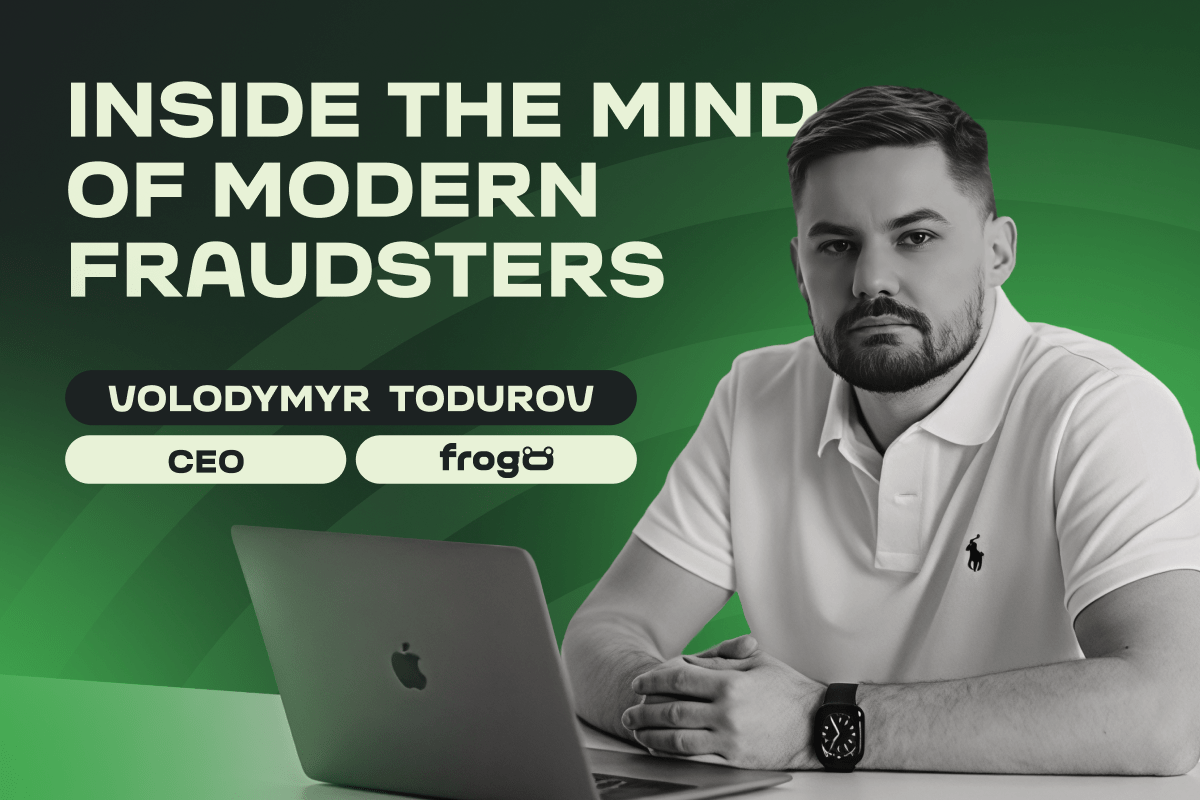
Fraud in the iGaming sector is no longer the work of lone opportunists. Today’s scammers operate in well-organized, tech-savvy networks – quietly exploiting systems that weren’t built to catch them. And as the digital economy grows, so too does the complexity of fraud schemes targeting gaming operators.
Amid this evolving threat landscape, Frogo has emerged as a company redefining how fraud prevention should work. We spoke with Volodymyr Todurov, CEO at Frogo, to get an inside look at how fraudsters are changing their tactics – and what operators can do to stay ahead.
Fraudsters evolve fast – how does your system stay one step ahead without overwhelming teams with false alarms?
Absolutely, the landscape of fraud is constantly shifting and staying ahead requires more than static rules. At Frogo, we’ve developed a dynamic system that adapts in real-time to user behavior and transaction contexts. Our platform learns from both fraudulent and legitimate activities, enabling it to distinguish between the two more effectively. This approach reduces false positives and ensures that our clients’ teams can focus on genuine threats without being bogged down by unnecessary alerts.
Can you walk us through a real-world case where your platform uncovered a fraud scheme traditional tools missed?
Absolutely. One notable case involved a large-scale bot attack targeting SMS-based fraud vectors. Initially, our standard device ID-based defenses helped neutralize the first wave of the attack. However, the adversaries quickly adapted, altering their emulation tactics to bypass traditional checks. At that point, conventional methods were no longer sufficient to detect the evolving fraud.
We responded by implementing a dynamic anomaly detection framework. This involved redefining detection signals in real-time using IP intelligence and deep device fingerprint attributes – areas where our proprietary data collection algorithms provided a significant edge. By anchoring detection logic to more granular and resilient signals, we were able to recalibrate thresholds dynamically, ensuring legitimate users weren’t impacted.
The results were decisive: bot attack efficiency dropped sharply from over 80% to just 3.5%.
What’s something about fraud detection that most businesses get wrong? And how does Frogo challenge that?
A common pitfall we see is operational rigidity – many businesses rely on static rules and general-purpose triggers that result in high false positive rates. This not only burdens anti-fraud teams with unnecessary manual reviews but also degrades the experience for legitimate users, especially loyal or VIP customers.
For example, it’s typical to see blanket rules like “manually verify all payouts over X euros.” While that may seem prudent, in reality it’s inefficient. It overlooks low-value, high-frequency fraud – such as bonus abuse – and disproportionately flags legitimate high-value players.
At Frogo, we take a different approach. Our system adapts rules dynamically based on customer behavior and segmentation. A trusted VIP user with a long-standing reputation shouldn’t be reviewed multiple times a day. But if a wave of new €5 accounts starts exhibiting bonus-hunting behavior, they should run immediate scrutiny – regardless of transaction size.
By aligning detection logic with behavioral context and player reputation, we reduce noise, increase fraud catch rates, and protect real users from unnecessary friction.
How does Frogo automate risk logic without sacrificing the flexibility businesses need to reflect their unique policies and traffic patterns?
At Frogo, we don’t see automation and customization as opposing forces – they operate in different dimensions. Our focus is on automating the customization of risk and scoring policies in a way that respects each client’s specific risk appetite and user behavior.
We achieve this through dynamic triggers. Rather than hardcoding arbitrary rules – like “five failed top-ups per minute equals fraud” – we apply adaptive scoring thresholds that align with real-world usage patterns.. For example, our system might detect that, for a certain payment method and user segment, more than 1.3 failed top-ups per minute is statistically anomalous – because it exceeds the 98th percentile of historical behavior.
But that same trigger adjusts automatically. If the next day a payment provider experiences a technical issue and normal users start retrying more often, the threshold might shift to 2.7. What was anomalous yesterday may no longer be today – and our system adapts accordingly to reflect evolving traffic patterns.
As a result: the clients retain full control over their risk strategy, while Frogo ensures their policies scale efficiently, adapt in real time, and minimize false positives – even in volatile traffic conditions.
Beyond detection – how does Frogo help companies investigate and understand fraud at a strategic level?
Detection is just the beginning. Frogo’s graph-based forensic tools and AI models provide a comprehensive view of the relationships between accounts, transactions and behaviors. This allows companies to identify patterns and vulnerabilities that might not be apparent through traditional analysis. Our analytics layer offers insights into trends and forecasts, enabling businesses to understand the broader context of fraudulent activities and make informed strategic decisions to mitigate future risks.
Fraud might be getting smarter, but so are the solutions built to fight it. Platforms like Frogo are helping operators move beyond reactive security measures and into a space of strategic, data-informed defense. In an industry where trust is everything, that shift might just be the difference between staying one step ahead – or falling behind.
Disclaimer: Frogo’s fraud prevention solutions are developed in full compliance with applicable data protection laws, including GDPR. All behavioural analysis is performed on anonymised or aggregated data, with full transparency and control provided to our clients.
The post Portrait of a Fraudster Then and Now: How Scammers’ Habits and Tactics Are Changing appeared first on European Gaming Industry News.
Interviews
Inside the Matrix: A Conversation with EveryMatrix Founders on Europe, Expansion, and Staying Hands-On
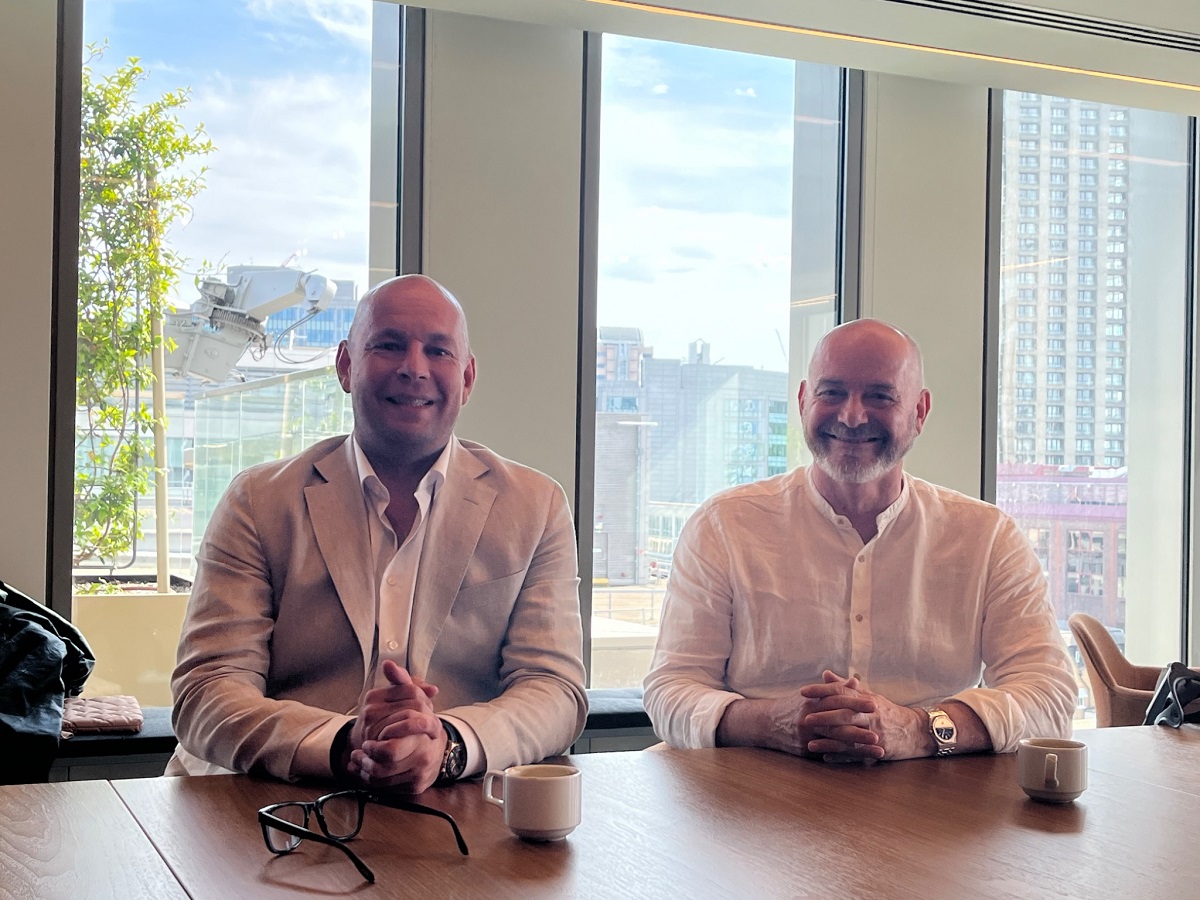
By Maria Emma Arnidou, Event Marketing Director at HIPTHER, for the European Gaming Media
During the recent EveryMatrix Media Day at the company’s opening of their new London office, Co-Founders Ebbe Groes (CEO) and Stian Hornsletten sat down with press to share key insights into their strategic vision. In this exclusive Q&A, we explore their views on the European Market, the evolution of EveryMatrix’s business model, leadership philosophy, and the company’s experience in the ever-evolving U.S. market.
Europe is filled with local heroes. It’s far more fragmented than most people think.
You discussed emerging markets in your presentation. What about Europe – is it considered saturated, or are there still areas of growth?
Ebbe Groes: I really don’t think Europe is saturated at all. In fact, big parts of it are still underdeveloped. Take France for example, it doesn’t allow online casino. Germany has effectively banned it. That’s two of Europe’s three largest economies where casino is either outlawed or nearly impossible. So yes, there is still plenty of room for growth.
Stian Hornsletten: And the market is getting more concentrated around a few bigger players, but even then, it’s not as centralized as in the U.S.
Ebbe Groes: Exactly. Europe is filled with local heroes. You won’t find many players dominating across the board. Kindred, Betsson – they’re strong, but when you go country by country and look at market share, the picture is very fragmented. Even with the economies of scale in marketing – say you sponsor a Premier League team – you’re still not getting the full return unless you’re present across multiple markets. That’s what makes Europe so different from the U.S., where a few big players hold all the cards.
We started with a sportsbook. Now we’re building an ecosystem.
EveryMatrix today operates across multiple verticals with a deeply diversified portfolio. Was this the vision from the start, or did it evolve as the company grew?
Stian Hornsletten: The vision definitely evolved quickly as we grew. We started with OddsMatrix, a B2B sportsbook product that was meant to be an off-the-shelf, managed solution – something that didn’t exist back then. Within a year, we had already expanded into turnkey and PAM solutions. By 2010–2011, we had launched the CasinoEngine and started specializing in product verticals.
We’ve always been very innovation-driven. We keep developing new products – some of which are still under wraps – and R&D remains one of the most exciting parts of what we do. Today, most of our top 10 clients are turnkey. While we still offer standalone modules, our growth has come from cross-vertical synergy.
Despite this scale and complexity, you both remain deeply involved in the company’s day-to-day operations. How do you manage to stay on top of everything across products, people, and processes?
Ebbe Groes: It helps that we’ve been here from the start. I wouldn’t want to be hired into this role now and try to learn everything from scratch – but I’ve had 18 years to absorb it all. We’ve built the company in a way that each vertical operates almost like its own business. For example, the sports division has its own CTO, product team, trading team, and even its own support function. That independence gives us breathing room.
It allows me to focus on high-level strategy, like acquisitions – take FSB, for instance. That required a lot of focus at the start, but eventually it will transition into the core business and require less direct involvement.
Stian Hornsletten: Over the years, we’ve also developed strong planning, reporting, and KPI structures across the business. That consistency makes it easier to monitor everything and integrate new divisions. Whether we open a new office or onboard a new team, we already have the systems in place to support them.
Ebbe Groes: And the same goes for finance and HR. When we opened the London office, the HR team already knew how to handle it – we’d opened three the year before. That kind of maturity allows us to move fast without creating chaos.
“In Europe we have 150 competitors in content; in the U.S., maybe 10.”
And what about the U.S. – a market many see as the holy grail of iGaming? What’s your current position there?
Ebbe Groes: To be honest, the U.S. was a tough lesson. We entered hoping to provide a full turnkey solution, but the market didn’t evolve the way we expected. Many well-funded B2C operators pulled out, and that left little demand for companies like us to offer the full stack. We pivoted to focus on one thing: our own gaming content.
Stian Hornsletten: We’re now live in four out of five regulated U.S. states for our own content, and we have agreements with all the major operators. Some new games from SlotMatrix are set to launch by summer, and they’ve already shown strong performance elsewhere – which gives us hope. If we manage to capture even 1–2% market share with our own content, that would already be meaningful.
But it’s been a long and costly process. Every state has its own regulatory requirements, separate hosting, and certification needs. And if one state’s not ready, operators won’t promote your games nationally. It’s frustrating, but it also reduces competition. In Europe we have 150 competitors in content; in the U.S., maybe 10. So if we can endure, there’s long-term potential.
The post Inside the Matrix: A Conversation with EveryMatrix Founders on Europe, Expansion, and Staying Hands-On appeared first on European Gaming Industry News.
-

 AGCO5 days ago
AGCO5 days agoAGCO Fines Great Canadian Casino Resort Toronto $350,000 for Serious Regulatory Violations Linked to Impromptu After-Party on Gaming Floor
-

 Africa5 days ago
Africa5 days agoALA Hosted Seminar on Artificial Intelligence and Cybersecurity
-

 Canada5 days ago
Canada5 days agoIGT and Atlantic Lottery Sign Eight-Year Video Lottery Central System Technology Agreement
-

 Latest News5 days ago
Latest News5 days agoUnlock Top-Tier Deals and Careers: Parimatch joins iGB L!VE 2025
-

 Africa4 days ago
Africa4 days agoDRC Signs MoU for Public-Private Partnership with Burundi’s East African General Trade Company
-

 Blokotech6 days ago
Blokotech6 days agoBlokotech unveils Cristian Tonanti as new Casino Partnership Manager
-

 First5 days ago
First5 days agoFIRST and Genius Sports Extend Landmark Data Partnership, Powering Continued Growth
-

 Brazil6 days ago
Brazil6 days agoEsportes da Sorte holds forum on “Integrity in Sports” with Ceará and Náutico













